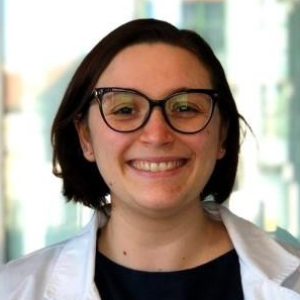Title : Roles of probiotics in oral health
Abstract:
Oral Lichen Planus (OLP) is an underestimated autoimmune inflammatory disorder of mucous membranes, which involves 1-3% of the global population. It is still unknown why patients with the same predisposing factors can present more lesions with a faster progression into Oral Squamous Cell Carcinoma (OSCC), whose incidence can reach up to 12.5% of the total OLP cases.
Recent evidence is underlying the involvement of oral microbiota imbalances not only in OLP development and tumour progression, but also in systemic infections and disorders in several distant body sites. Since the still late OSCC diagnosis causes high morbidity/mortality rates, sanitary costs and social impact, novel prevention and treatment measures are urgently needed.
In order to respond to this demand, in this study we focused on Aggregatibacter actinomycetemcomitans (DSM 11123), Streptococcus mitis (DSM 12643) and S. mutans (DSM 6178), three normal oral commensals, which, under selective pressure, can overgrowth and behave as opportunistic pathogens, especially in OSCC affected patients. Recent studies found a similar dysbiotic pattern in pre-tumoral oral lesions, such as OLP. In particular, these pathogens can promote systemic infections and chronic inflammation, that are major OSCC triggers.
We selected, after literature research, six specific Lactic Acid Bacteria (LAB; Lactobacillus brevis LBR01-DSM 23034, L. salivarius LS03-DSM 22776, L. reuteri LRE11-DSM 33827, L. rhamnosus LR04-DSM 16605, L. casei LC04-DSM 33400 and L. fermentum LF26-DSM 33402, from Probiotical Research SpA and deposited at DSMZ) and we investigated, by an Agar Spot assay, their capability to contain the overabundance of the oral opportunistic pathogens. Then, we analysed LAB cell free supernatants (CFS) to determine their ability to reduce pathogen viability, using the BacTiter-GloTM Microbial Cell Viability Assay, and to prevent biofilm formation, via crystal violet staining.
The LAB and their CFS demonstrated to contain pathogen viability and virulence; in particular, CFS from LRE11, LR04, LC04 and LF26 strains are the best performers that we will further evaluate for their possible effects in reducing the inflammation, DNA damage and apoptosis induced by infections in human oral keratinocytes. Finally, an in vivo perspective clinical study will be conducted on a cohort of OLP cases with the aim to investigate the impact of the selected LAB on their salivary and serum metabolic and inflammatory profiles.




